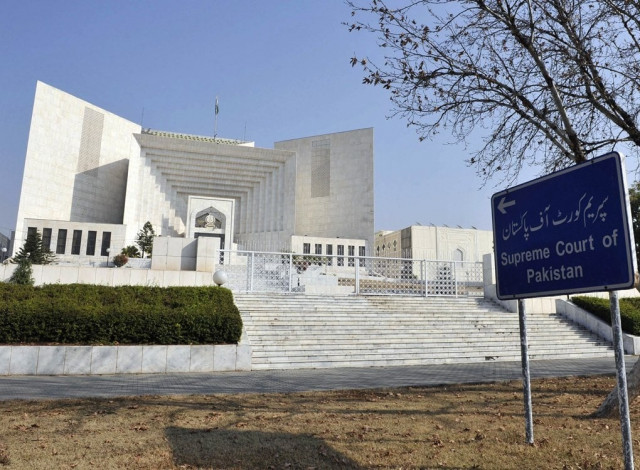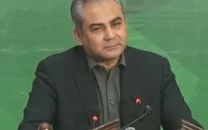SC asks why armed forces kept out of NAB ambit
Justice Shah wonders why PTI chief hasn’t objected to this in his plea against amendments

Supreme Court Judge Justice Syed Mansoor Ali Shah on Wednesday wondered why PTI chief and deposed premier Imran Khan challenging the recent amendments to the accountability law had not objected to the exclusion of armed forces as they were running the biggest businesses in the country.
“You could have said that NAB [National Accountability Bureau] law is discriminatory in nature,” he told the PTI chief’s lawyer while hearing his client’s petition against the amendments.
However, Khawaja Haris, the counsel for Imran, replied that army officers, who were associated with any business entity, were not exempted from NAB jurisdiction.
A three-judge bench of the apex court, led by Chief Justice of Pakistan Umar Ata Bandial, resumed the hearing of Imran’s petition.
During the previous hearing, Justice Shah had raised the question as to why the NAB law did not apply to judges.
During Wednesday's hearing, Justice Ijazul Ahsan inquired if there was anyone left who had not been exempted from the NAB law.
“The decisions of tehsil council chairmen and vice chairmen have also been exempted,” he added.
Justice Shah remarked that apparently the officers had been given the freedom to make decisions as public officials.
Imran’s lawyer contended that a sum of Rs8 billion was recovered from such decision-makers in the past.
Justice Shah asked whether or not the recovery was made from public representatives.
Haris replied that the money was recovered from those operating for public representatives.
Justice Shah noted that every official decision had benefited some section or the other.
The lawyer replied that there was nothing wrong as long as the benefit was not illegal.
However, he added that it was wrong not to take action against a certain officer for giving an illegal benefit.
“Now NAB cannot lay hands on any regulatory authority and government company,” he argued.
Justice Shah remarked that why were the armed forces kept out of the ambit of the NAB law.
He added that the armed forces were running all the major businesses in the country.
“It is surprising that the PTI had not objected to keeping the armed forces beyond the jurisdiction of NAB,” he observed.
Justice Shah further noted that even judges were not exempted from accountability.
Haris said through the NAB amendments, the crimes of possessing assets in excess of income and misuse of powers were eliminated.
The CJP noted that it was not enough that the assets were more than the income.
He added that corruption or dishonesty in the assets was also necessary.
Justice Shah inquired what if someone approached the court tomorrow and wanted a person to be executed for having assets in excess of their income.
The CJP told Haris that there was a balance when it came to basic human rights.
He added that apart from that, there were also the basic rights of national interest and society.
Justice Bandial noted that there should be a balance between the two.
“You are linking the benefit received by an individual with the rights of the society,” the CJP told the lawyer.
Justice Bandial inquired what would happen if the cases went to other forums, adding that the bench needed assistance on this issue.
“How the NAB law is harmful to the public interest; this question is important,” he added.
The lawyer replied that the limit of action of NAB on corruption could be reduced from Rs500 million to Rs100 million. However, he added that the PTI's objection pertained to applying the NAB law from the past.
The SC adjourned the hearing till Monday.



















COMMENTS
Comments are moderated and generally will be posted if they are on-topic and not abusive.
For more information, please see our Comments FAQ